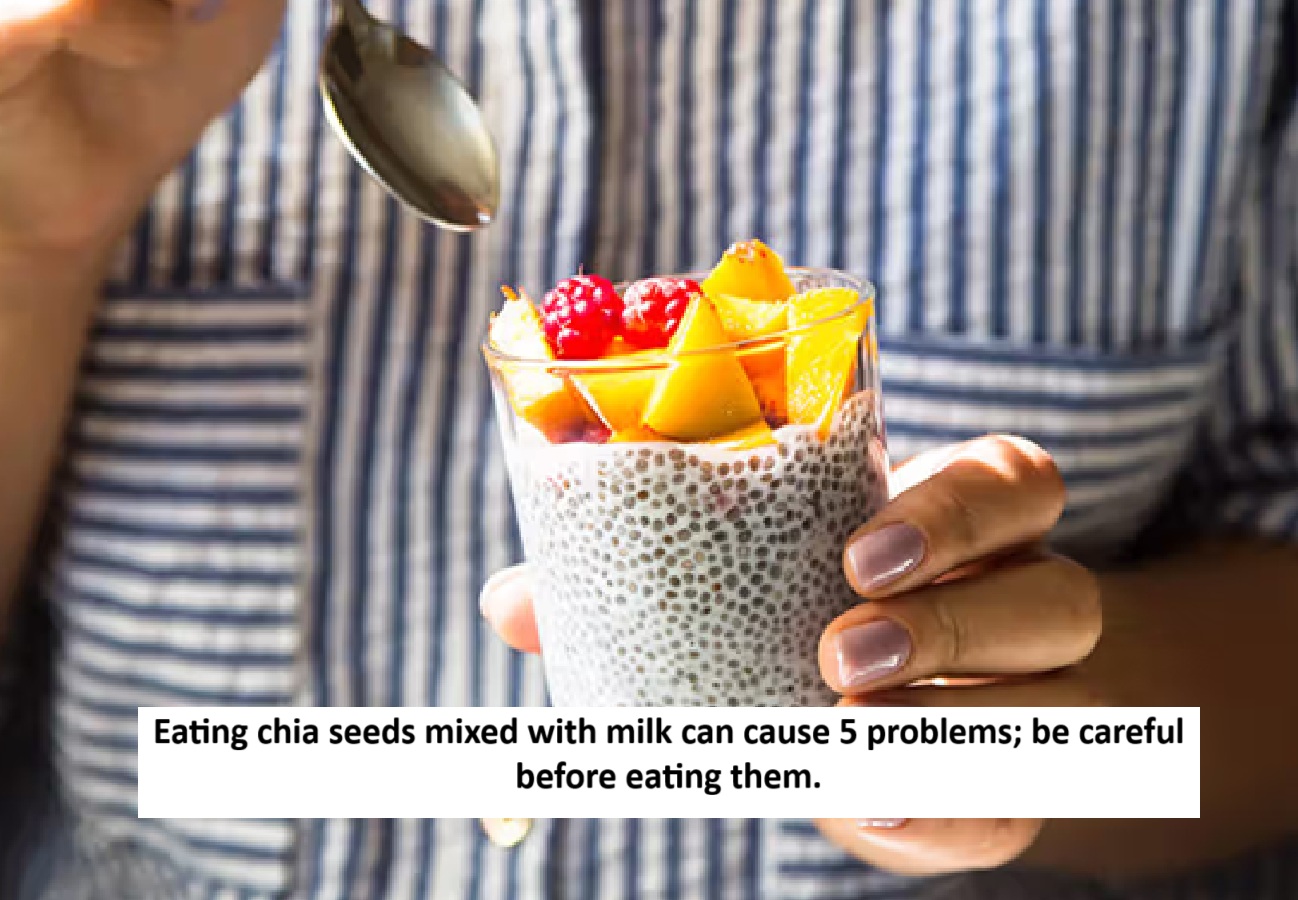
News Topical, Digital Desk : Chia seeds have become popular among many people these days. Those trying to lose weight often include them in their diet. These seeds are considered a superfood due to their rich nutritional value. However, consuming them incorrectly can cause serious health problems.
To reap the full benefits of chia seeds, it's crucial to consume them properly. People typically consume them after soaking them in water, but some also mix them with milk. While the combination of chia seeds and milk may seem healthy, it's not safe for everyone. Sometimes, consuming these seeds with milk can cause some problems. Let's explore these risks.
Digestive problems
Chia seeds contain a significant amount of soluble fiber, which absorbs liquid and swells like a gel. Therefore, mixing them with milk can overtax the digestive system, leading to bloating, gas, cramps, or constipation. A review in Nutrients also suggests that a sudden increase in dietary fiber may cause gastrointestinal problems.
Choking hazard
Chia seeds absorb up to 10-12 times their weight in liquid, which can be dangerous if consumed dry and then mixed with milk. A case report in the Annals of Allergy, Asthma & Immunology suggests that eating dry chia seeds can cause them to swell, increasing the risk of choking. To avoid this risk, soak chia seeds thoroughly before using them.
lactose intolerance
Milk is already a problem for people with lactose intolerance . It can cause diarrhea, bloating, and cramps. The fiber in chia seeds can exacerbate these problems.
nutritional deficiencies
Chia seeds contain phytic acid, which reduces the absorption of minerals like calcium. A study published in Foods confirms this. Therefore, excessive consumption of chia seeds with milk may reduce calcium absorption in the long term.
allergic reactions
Although rare, chia seeds can cause allergic reactions in some people. This can lead to rashes, digestive problems, or difficulty breathing. Milk, one of the most common allergens, can exacerbate these reactions when combined with chia seeds.
Read More: Could relying solely on the HbA1c test for diabetes be wrong? Learn the truth from an AIIMS doctor.
--Advertisement--

 Share
Share



